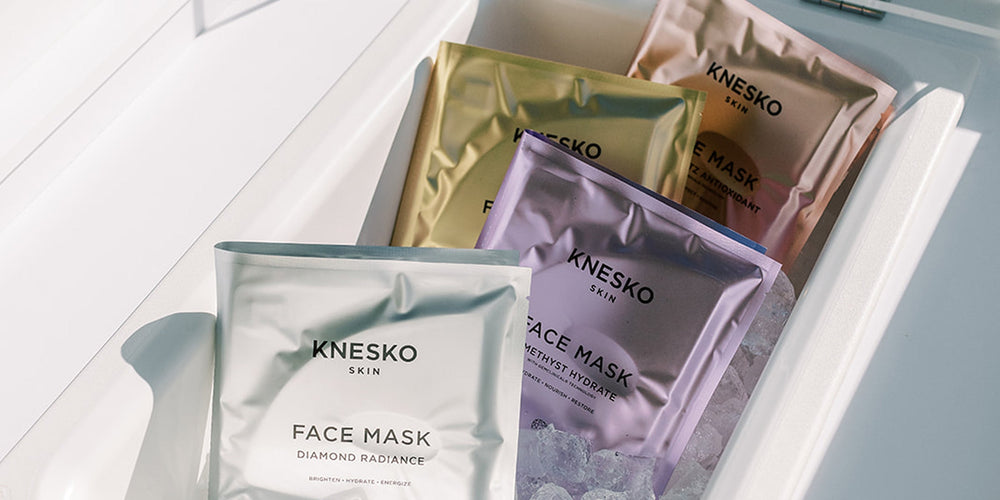When it comes to skin that looks supple and refreshed, there is one very important protein you’ll need to pay attention to: collagen. When we are young, our body is abundant with collagen. However, as we age, our bodies naturally decrease production, meaning that we need to take proactive measures to replenish our skin with the cell-repairing protein. Some of the most important ways you can restore collagen to your face are through diet, lifestyle, sun protection, skincare routines, and more.
If you notice the signs of decreased collagen (i.e. skin that is wrinkled, sagging, dull in color, or slow to heal), try making these small changes for big results.
# 1 Eat a collagen-rich diet
One of the easiest ways to increase collagen production is by eating foods filled with amino acids that encourage restoration—proline, lysine, and glycine. These collagen building blocks can be found in foods like quality bone broth, egg whites, garlic, and fruits rich in Vitamin C (oranges, grapefruit, berries, mango, pineapple, etc.). You should also avoid sugars and refined carbs, which can damage collagen and other proteins in your body and skin.
# 2 Quit smoking
We often hear that smoking can age you. This is because chemicals found in tobacco can damage and deplete collagen levels as well as other elements important for regenerative, elastic skin. Cutting back, or better yet eliminating, your smoking habits can give collagen a chance to take effect and firm up those fine lines. And yes—second-hand smoke counts!
# 3 Sleep it off
There’s a reason why we refer to a good eight-hour rest as “beauty sleep.” When y our body is resting, it’s restoring and regenerating a lot of different things, including collagen. Dozing off on a regular, consistent schedule could be one of the best things you do for your skin (and your body ). While every person requires a slightly different sleep schedule, you should aim to achieve about eight hours each night.
#4 Apply SPF daily
If you haven’t adopted the daily habit of applying SPF yet, here is one more reason you should. Ultraviolet light from the sun not only causes uncomfortable burns and skin cancer, but it also has a major impact on our collagen levels. Over exposure causes the skin to lose elasticity, sag, stretch, and even bruise or become blotchy. In other words, don’t skip the sunscreen!
#5 Meditate
We all know that mental and emotional fatigue often follows long bouts of stress, but it shows up on your skin as well. Stress can block many of your body’s natural, healthy functions, including the production of collagen. When the body is stressed, it releases cortisol, the age-old “fight or flight” alarm system, which is also known for diminishing the effectiveness of collagen. Taking time out to relax, meditate, and center yourself can help reduce stress and improve your body’s performance from the inside-out.
#6 Apply a face mask
While making important lifestyle changes can help increase your collagen production, it can often take time and may be difficult to trace the effects. Adding a collagen mask to your regular skincare routine provides a heavy dose of collagen where your skin needs it most: the face, the eyes, the neck, and the décolleté. When using a collagen face mask, you should notice an almost immediate difference, with visibly firmer and younger-looking skin.
Try KNESKO’s Collagen face masks
At KNESKO, we have a treasure trove of hydrogel face masks that all contain sustainably sourced marine collagen. Each collagen mask is made with our proprietary GEMCLINICAL® technology, which blends the benefits of collagen, gemstones, Reiki, and other skin-nourishing ingredients to target a variety of skin concerns and spiritual needs.









